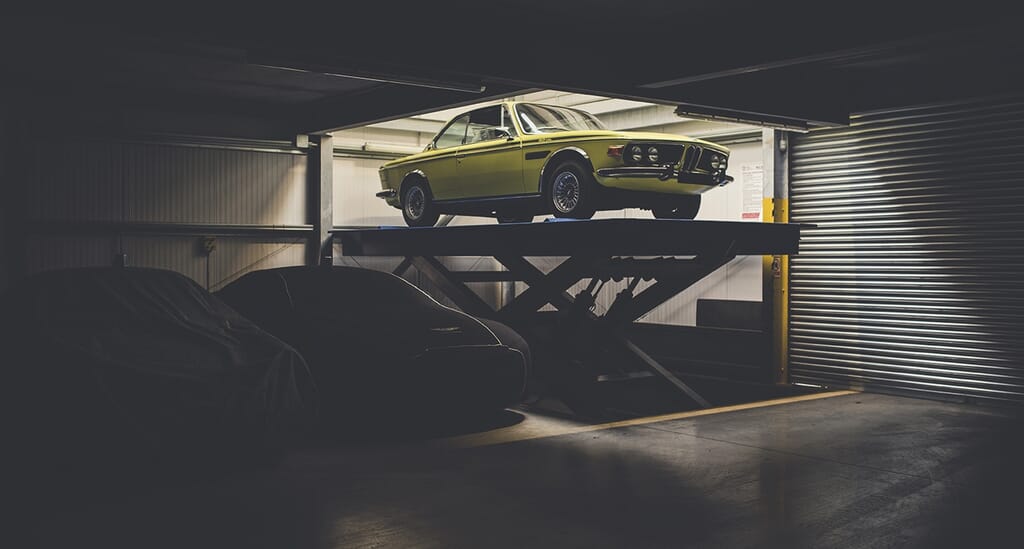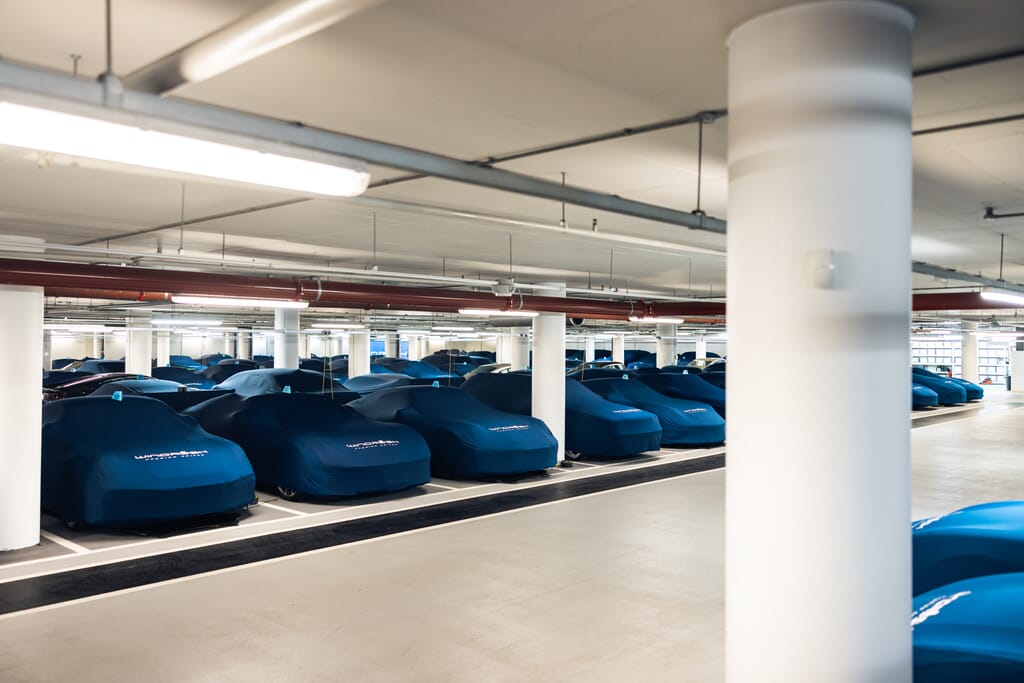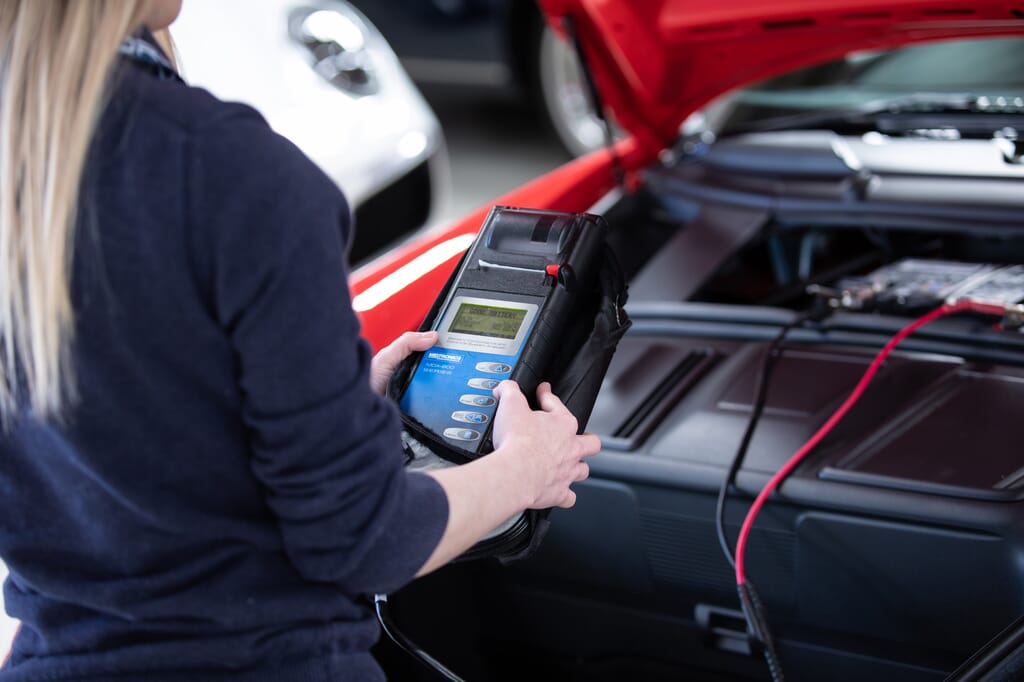
Whether you’re considering traditional or electric vehicle storage, batteries are one of the most important components to correctly maintain. Here’s how we do it at Windrush long term car storage.
The heart of your vehicle

Car batteries never really stop working. Long after you’ve turned off the engine, the battery continues to supply countless electrical components with the power they need, from engine management systems and sat nav to alarm, clock, radio memory and more.
Due to this constant demand, batteries can become drained in a matter of weeks if not maintained in the correct manner, by either driving the vehicle long enough to replace lost charge or through the use of a battery charger.
When keeping your vehicle off the road for extended periods, checking and boosting every 30 to 60 days is simply not enough to guarantee your battery won’t self-discharge to a critical level. This ‘undercharging’ results in ‘sulphation’ if the battery voltage is allowed to drop and remain below 12.4 volts. Otherwise known as the hardening of the lead plates within the unit, sulphation is serious, reducing the battery’s ability to accept or hold charge.
As a vital consideration of both our traditional and EV storage service, the Windrush team won’t let that happen. We not only recommend the use of a charger to maintain battery power levels, but have a particular method for charging that we’ve come to rely on.
The art of car battery charging
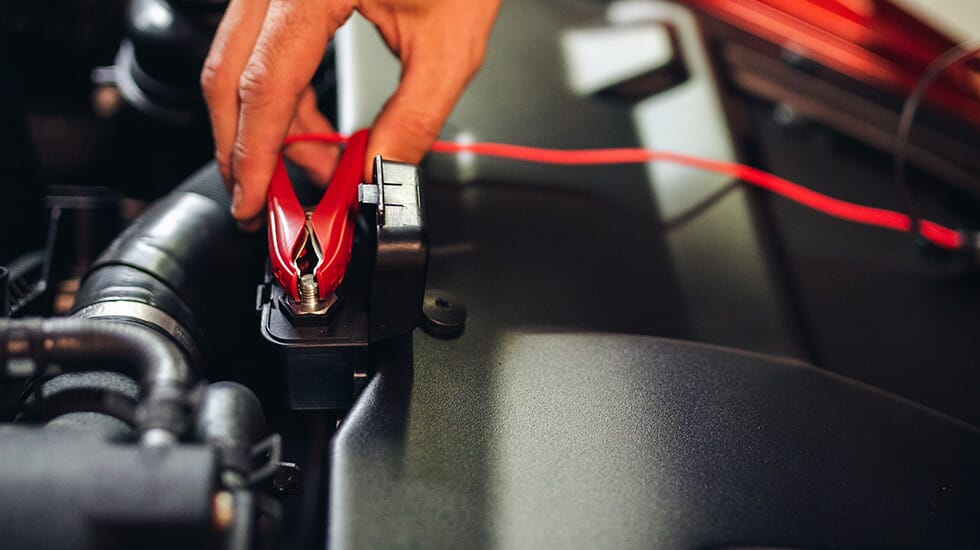
There are several popular charging methods, but they give markedly different results – and some can even be dangerous in the wrong hands.
- Charge with a regular battery charger. The drawback is that these units often aren’t automatic and will not turn off when full charge is reached. Left unattended, your battery could ‘boil dry’ from overcharging, and can even become dangerous due to highly explosive gases produced from charging at a high rate. Even the casing can get hot enough to pose a fire risk.
- Trickle charging. With this method, the charging device provides the connected battery with a low, steady charge. The downside is that the constant low charge is often not sufficient to keep car batteries above the critical voltage of 12.4 volts. The danger is that this method might maintain a good battery but not recharge it if the voltage level gets too low.
- Battery conditioners. As part of the Windrush long term car storage solution, we connect all vehicles to a battery conditioner. These fully automatic units monitor, charge and maintain car batteries with no risk of overcharging. They can be left switched on and connected for extended periods (we’re talking years) without the risk of gassing or overheating. Of the three options, it’s the one we’ve come to trust.
EV storage and car batteries
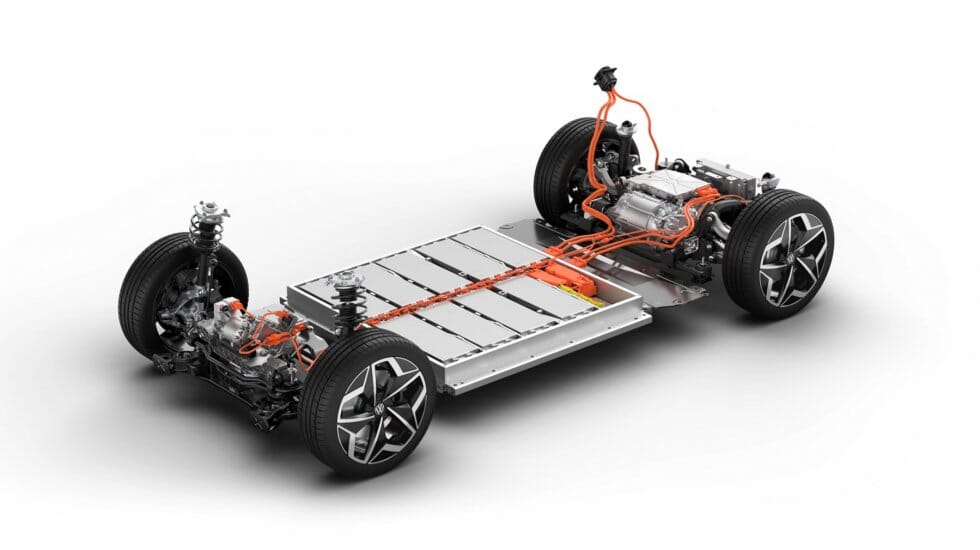
Electric vehicle storage is an art in its own right. Research by warranty provider Atelium suggests that EV battery degradation occurs fastest when a unit is stored at 70-80% state of charge, and slows down considerably at 60% or less (storage at 0% charge was seen to slow degradation most effectively).
But with Windrush’s tailored electric car storage service, we’ll never take a catch-all approach, instead weighing up the specifics of your EV and drawing up a bespoke maintenance plan to suit.
Tips for maintaining car batteries
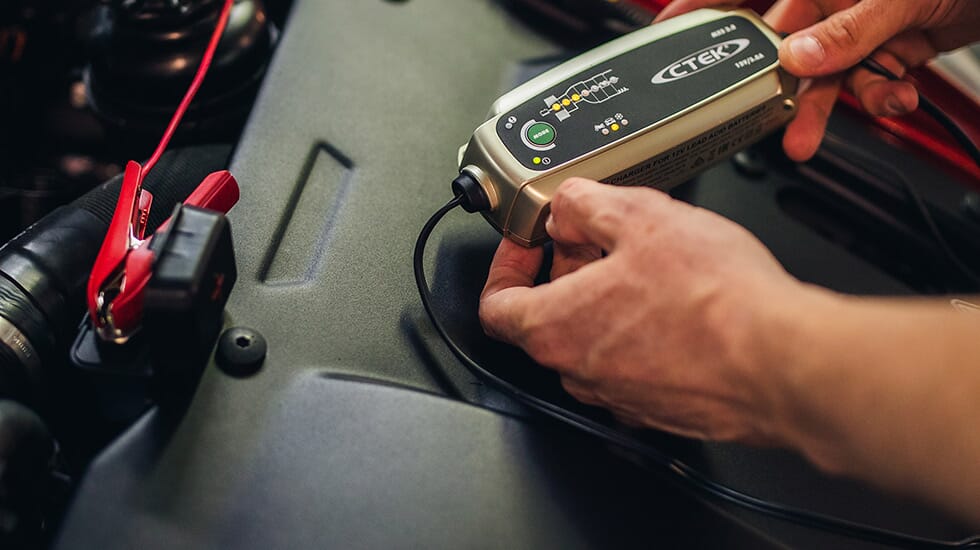
Before connecting a charger, there are a few golden rules to keep in mind.
If the battery isn’t a sealed unit, ensure the fluid level sits between the minimum and maximum marks. Top up with distilled or de-ionised water (the acid in the battery doesn’t need replacing because it is not consumed).
Clean battery terminals and lead connectors with a tough wire brush. Make sure the positive and negative leads have a good fit to each of the terminal posts and use a dedicated battery terminal spray or petroleum jelly to prevent corrosion.
An easily overlooked but important point: before disconnecting the battery, ensure you have the radio passcode. Once you reconnect the battery, you’ll need to enter this for the radio to function again.
Classic, modern, supercar and EV storage in London and the Cotswolds
At Windrush, we’re renowned for a long term car storage service that keeps every marque and vintage of cherished vehicle in the form of its life. From our exhaustive induction process to ongoing maintenance and checks, our facilities in central London and the Cotswolds set the standard for classic, modern, supercar and EV storage. Drop in and find out why for yourself.
From bespoke electric car storage to classic vehicle maintenance, speak to the Windrush team today on info@windrushcarstorage.co.uk

